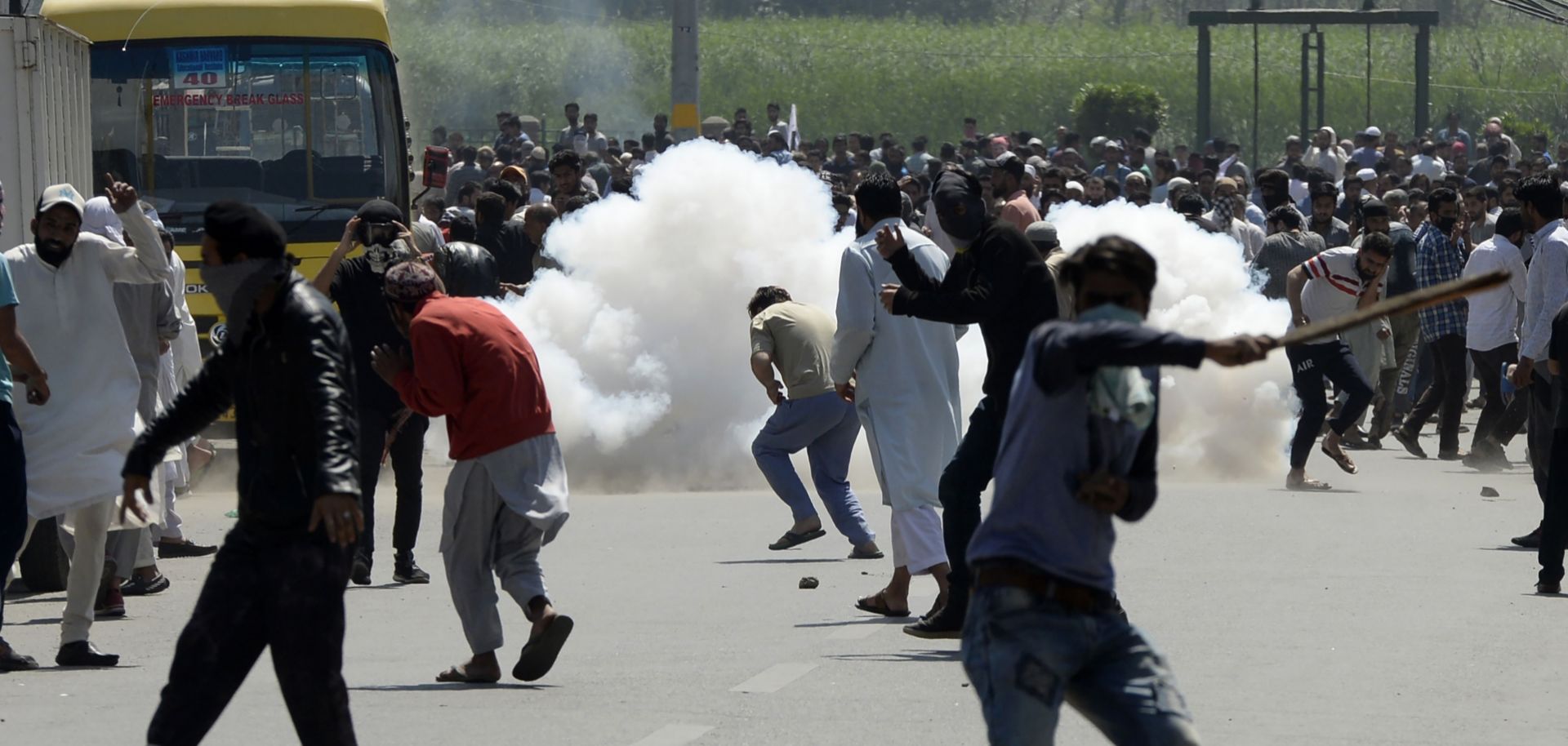GUIDANCE
What India's Elections Mean for Jammu and Kashmir
Jun 29, 2018 | 09:00 GMT

Protesters attending the funeral of a man who was killed during previous clashes with Indian security forces, battle police in Srinagar, Kashmir, on June 2. The growing unrest in Jammu and Kashmir could lead to stricter security measures by New Delhi.
(TAUSEEF MUSTAFA/AFP/Getty Images)
Highlights
- Indian Prime Minister Narendra Modi is focusing on his 2019 re-election campaign, in which he will emphasize security over dialogue in his approach to the conflict in Jammu and Kashmir.
- This means there will probably be an increase in violence between the insurgency and the Indian Armed Forces in the Kashmir Valley.
- The relationship between nuclear archrivals India and Pakistan will thus remain tense and unmoving until at least after the May 2019 Indian elections.
Subscribe Now
SubscribeAlready have an account?
